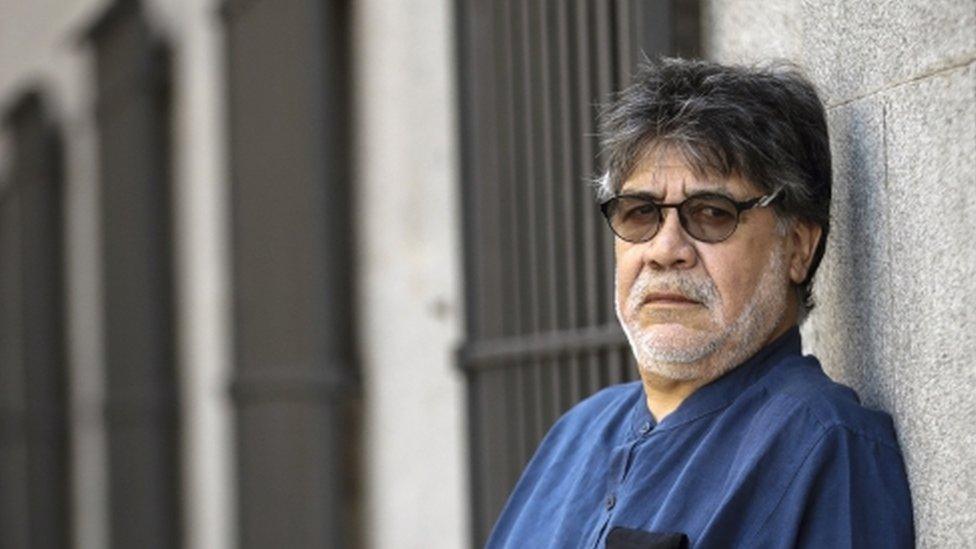Coronavirus: Chile protesters clash with police over lockdown
- Published
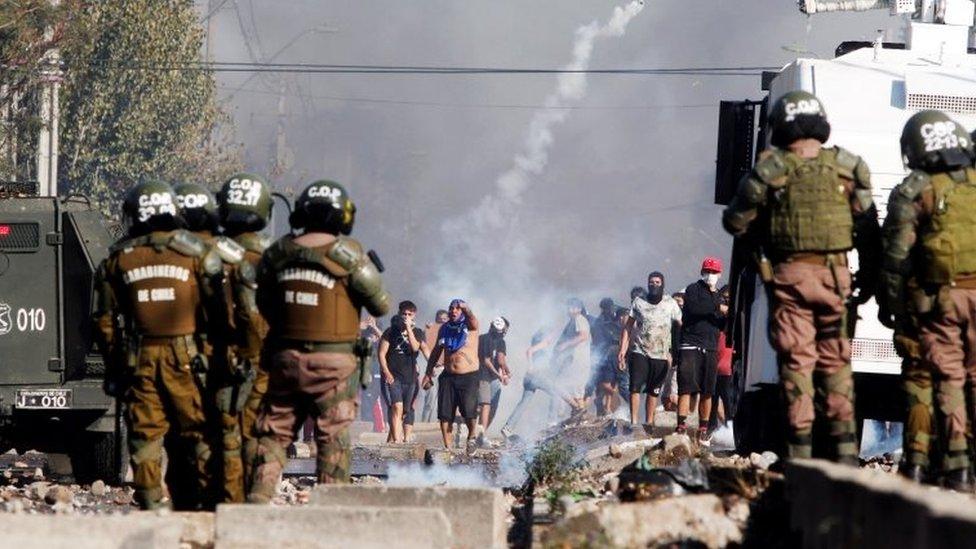
Chile has been rocked by protests over inequality since October 2019
Protesters and police have clashed on the outskirts of the Chilean capital Santiago amid tension over food shortages during lockdown.
Local television showed police using tear gas and water cannon to quell unrest on the streets of El Bosque, where poverty is high.
President Sebastián Piñera, in a televised address after the protests, pledged to get food to those in need.
Chile has more than 46,000 cases of Covid-19 so far, with 478 deaths.
A recent surge in cases prompted the national capital to go under a strict and total lockdown this weekend.
In a separate development on Monday, dozens of members of Chile's senate and two government ministers went into preventative isolation following recent contact with infected colleagues.
Why were there protests?
Groups of protesters were seen throwing stones and setting fires in parts of the El Bosque neighbourhood.
District mayor Sadi Melo told local radio it was facing a "very complex situation" because of "hunger and lack of work".
In a statement, local officials said they had distributed about 2,000 aid packages but warned the government they could not meet demand.
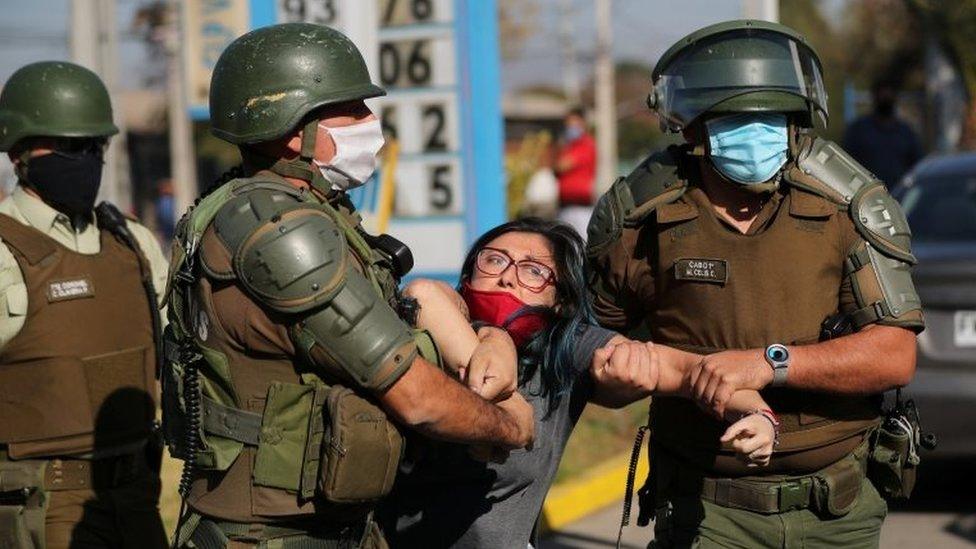
Protesters were demonstrating about a lack of government help
President Piñera later pledged his government would provide 2.5 million baskets of food and other essentials over the next week or so.
"We will prioritise the most vulnerable families," he said, describing the plan as "historic".
Following the announcement, the governor of the Santiago Metropolitan Region, Felipe Guevara, tweeted (in Spanish) to encourage residents to follow the rules and stay at home for their own safety.
"I understand the deep anguish of millions of Chileans, thousands are starving," he wrote, whilst also dismissing controversy over comments he made about the protests on television.

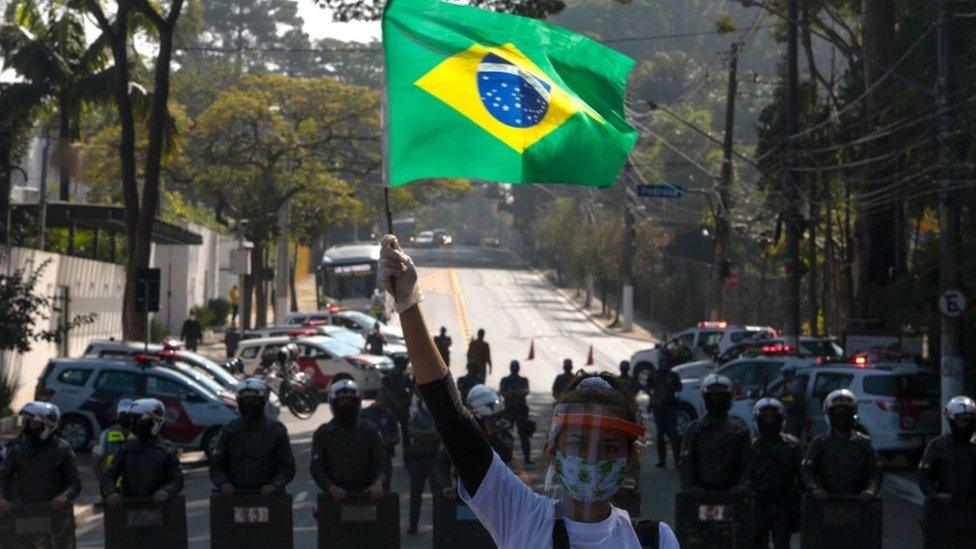
Poor Brazilians are among those seeking more support
Unrest across Latin America
By Candace Piette, BBC World Service Latin America editor
The Santiago protest is part of a growing pattern of resistance to the lockdowns all over Latin America.
In Brazil, hundreds of people from Sao Paulo's largest favela marched to the state governor's palace demanding more support.
In Colombia people have been hanging red cloths outside their homes when they are hungry.
And in El Salvador, people have been banging pots to protest against the lockdown.
Latin American governments are struggling with how to keep their large poor populations in lockdown with few financial resources and weak social systems.

Chile has seen significant social unrest since October 2019 when protests first erupted over a planned increase to metro fares.
Growing anger over low wages, high costs of living and inequality sparked months of unrest, but protests have gradually subsided as Covid-19 spread.
President Piñera has already unveiled stimulus measures to try to ease the economic impact of the pandemic, but critics and opposition groups say his plans do not go far enough.

A SIMPLE GUIDE: What are the symptoms?
ON FRONTLINE: The young doctors being asked to play god
REASON TO HOPE: The good that may come out of this crisis
AVOIDING CONTACT: The rules on self-isolation and exercise
HOPE AND LOSS: Your coronavirus stories

- Published17 May 2020
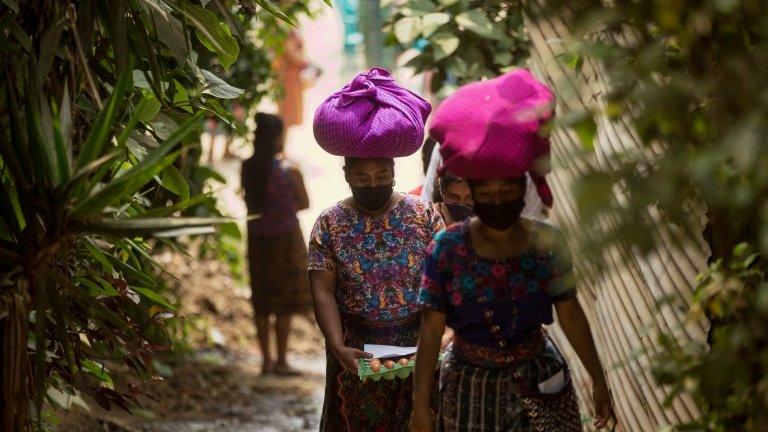
- Published1 March 2020
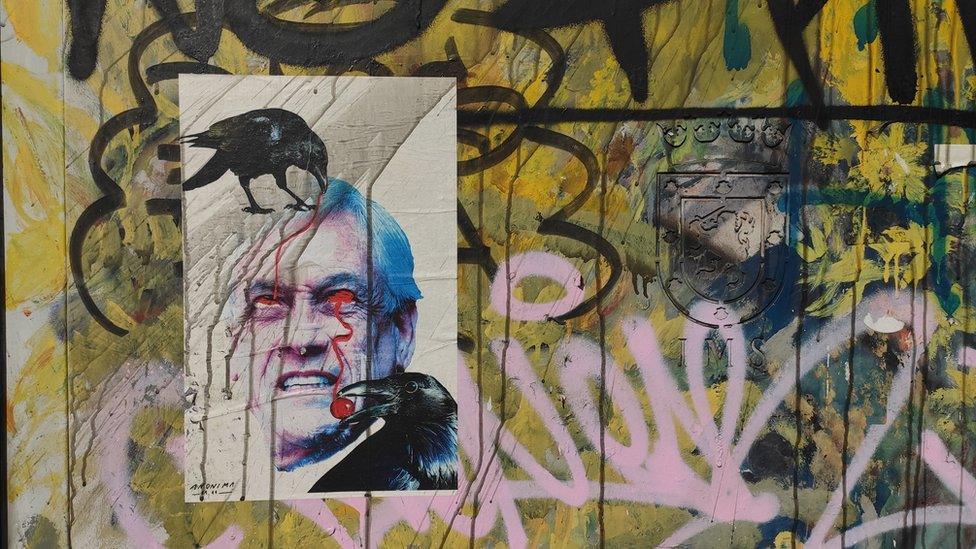
- Published26 April 2020
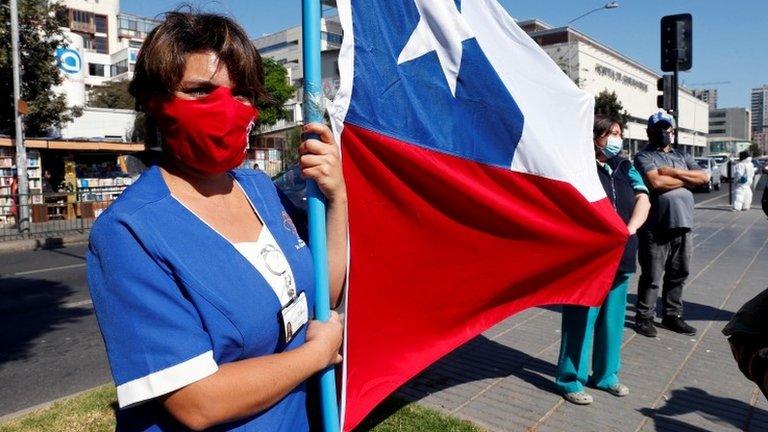
- Published16 April 2020
